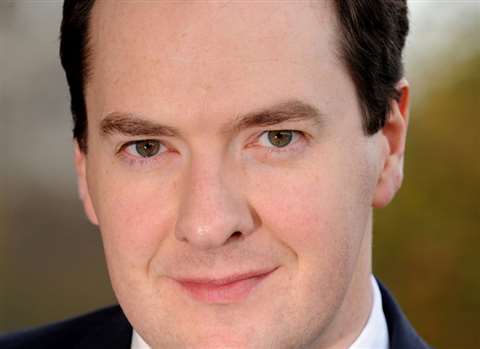UK government makes infrastructure pledge
26 November 2015

The UK government is promising an extra £12 billion (€17 billion) on capital investments, which Chancellor of the Exchequer George Osborne said was “making faster progress to building the infrastructure our country needs”.
Among other initiatives, Osborne said he was doubling the housing budget to over £2 billion (€2.8 billion) per year. He said this would lead to 400,000 affordable new homes by the end of the decade, while public land would be released that was suitable for 160,000 homes and unused commercial land re-designated for starter homes.
The sale of old prisons would create more space for housing in inner cities, he said.
Transport capital spending will increase by 50% to a total of £61 billion (€86.7 billion), which he said would fund the UK’s largest road investment programme since the 1970s.
Osborne added that this meant the construction of the HS2 high-speed rail project to link the Northern Powerhouse to the south could begin. London will get an £11 billion (€15.6 billion) investment in its transport infrastructure.
Many of the Chancellor’s plans were met with a somewhat muted response.
Rob Oliver, chief executive of the CEA (Construction Equipment Association), said, “The announcements on infrastructure spending and boosts to housing starts are welcome, but with the usual ‘but’ – ie, will they be translated into visible action and sustained construction activity?”
Jeremy Blackburn, head of policy at RICS (Royal Institution of Chartered Surveyors) said, “In order to maintain our position on the world economic stage, Britain needs a first-class infrastructure system.”
He said the Chancellor had quite rightly made infrastructure a strategic priority, with the £61 billion spend on transport for this Parliament.
“He has set up set up an independent commission to revamp the national infrastructure pipeline and plan. This should ensure the new money is prioritised.”
“But there is a much bigger problem which will have major repercussions for the UK’s current and future infrastructure plans,” he added. “Our data shows that tender prices for infrastructure projects are expected to rise by around 30% over the next five years.
“In addition, we don’t have the investment needed to cover the existing £400 billion (€568.3 billion) infrastructure funding gap. British infrastructure is undoubtedly facing a funding crisis. While money announced today will help, we need to go much further.”
'Few surprises'
Dr Diana Montgomery, chief executive of the Construction Products Association, said there were “few surprises for our industry” in the Autumn Statement.
“Our view continues to be that while we’re pleased with the government’s aim to help first-time buyers, the housing crisis has less to do with supporting demand and more to do with increasing the supply.
“Today’s plans – paired with a raft of measures addressing planning reforms, the release of appropriate land for housing and help for SME (small and medium-sized enterprise) house builders – may go some way towards achieving that.”
Carolyn Fairbairn, director general of the CBI (Confederation of British Industry), said, “It’s good that the government has increased capital spending and remains committed to road and rail investments, including the Trans-Pennine railway. Businesses will want to see promised projects breaking ground as early as possible in this Parliament to maintain momentum.
“Building more affordable homes is critical to firms being able to recruit and retain talented employees across the country and will provide a shot in the arm to the construction sector.”
She said schemes like starter homes, extensions to the Help-to-Buy programme, and releasing more public sector land could bring the UK closer to building the 240,000 homes a year which she said it “sorely needed”.
“However, a healthy and vibrant housing market requires a mix of tenures such as private rented properties, affordable rent as well as homeownership,” she added.
Skills shortage
The construction skills shortage in the UK was highlighted by many. At specialist recruiter Randstad CPE, managing director Owen Goodhead asked who would build the new homes.
He said, “Our analysis shows the vast gap in the capacity of the UK workforce to build homes, and the need for places to live for a growing population. As a country we need to find 100,000 carpenters, 89,000 plumbers, 27,000 bricklayers. We’re facing a shortage of 9,000 floorers and 14,000 roofers.
“To build enough homes, the UK needs to train an extra 30,000 quantity surveyors and 61,000 project managers. That is not the sort of challenge to relegate to the footnotes.”
Richard Threlfall, head of infrastructure building and construction at accountants KPMG, said, “Today's spending review is good news for infrastructure. The government has again prioritised capital spending, and put serious money behind its commitments to HS2, the Northern Powerhouse and transport in London.
“However, this is tempered by the 37% cut in the Department for Transport’s operating budget which surely raises concerns over the Department’s capacity to drive forward its substantial pipeline of projects.”
Threlfall said, “There also remains a huge inconsistency between the slick sound bite of devolution revolution and the reality that it is central government still signing the big cheques and deciding which schemes it wants to support.
“Only when the government transfers material control over tax revenue from the Treasury to the regions will we see real devolution of power and the ability of the UK’s major cities to plan and deliver long-term programmes of infrastructure investment.”

